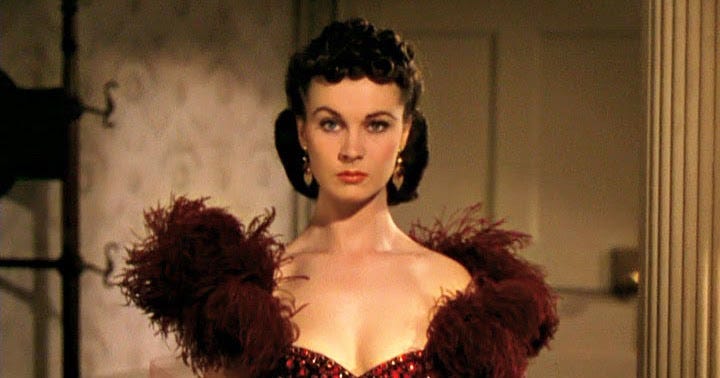“Education is an admirable thing, but it is well to remember from time to time that nothing that is worth knowing can be taught.”
- Oscar Wilde
“An adventure is only an inconvenience rightly considered. An inconvenience is only an adventure wrongly considered.”
– G.K. Chesterton.
You name it, these guys have done it, seen it, completed it. They’ve climbed Mount Tibidabo. They’ve eaten deadly pufferfish. They’ve played Russian Roulette. To the rest of us, they seem so remarkably fearless, and almost inhumanly capable of surviving the most terrifying situations—and yet, to them, it’s just another day at the office. For those of us crippled with self-doubt and a regard for health and safety which mitigates against footloose and fancy-free behaviour, this nonchalance towards danger and experience can be both highly annoying and, if we’re totally honest, deeply jealous-making. Really, we all want to be a bit more like Explorers.
The Explorers’ strength for Prospecting—their openmindedness and flexibility—teams up really nicely with their Sensing capabilities—their sharp ability for assessing their surroundings and those in their company—making this type formidable at troubleshooting and ‘thinking outside the box’. Unburdened as they are with worries about the whys and wherefores, Explorers will always be at the cutting edge of new ideas, ready to embrace and try out what others aren’t even willing to consider. When it comes to reading literature, this could be a very compelling strength—if only these guys would be willing to ease off of their busy base-jumping-and-swimming-with-sharks schedule long enough to sit still with a book.
When choosing literary doppelgangers for Explorers, I was taken aback at how many heavy-hitters were in the cohort. Scarlet O’Hara, James Bond AND Achilles??? That’s just not fair. You guys should get some kind of recognition for monopolising some of the most fun and bonkers characters in all of literature, it’s really quite remarkable.
ISTP - The Virtuoso
Who are they?: Hey Mr (or Ms) Marlboro (wo)Man, you think you’re so cool, don’t you? Annoyingly, though, you actually are. Virtuosos rarely break a sweat over anything, picking up new skills with ease, and finding ways through the most seemingly impossible situations with the annoying ease of James Bond seeing off 12 different henchmen, each with a single punch. While Virtuosos are often seen as the handymen of the 16 personalities, they’re so much more than merely efficient troubleshooters and washer-tighteners. ISTPs are hugely open-minded, able to use the tools at their disposal in ways that the rest of us wouldn’t even have the imagination to think up. Not that they’ll soak up any of that praise—attempt to compliment them on their practical prowess and you’ll likely be met with a casual shrug. Darn it, these guys are annoyingly cool.
Literary doppelgangers: James Bond (Casino Royal, etc), Tom Joad (The Grapes of Wrath), Marlow (Heart of Darkness)
I think you’ll like…: The authentic, rough-hewn, outdoorsy honesty of any of John Steinbeck’s ouvre will likely appeal to the ISTP, but the one that might resonate the most could be Of Mice and Men. George and Lennie’s struggle to make a better life for themselves against the harsh backdrop of the Great Depression and a landscape which was literally called ‘the Dustbowl’ will speak to the ISTP’s own desire for bold action during times of crisis, troubleshooting near-certain failure and destitution. Steinbeck has a no-nonsense, unpretentious style which will appeal to ISTP, and his work tends to be full of action and activity—but don’t be fooled. While his narratives are gripping and easy to understand, they are full of symbolism. Given that the Virtuoso is a type to whom pretense, ostentatiousness and displays of wealth are anathema, if the ISTP is willing to look a little deeper into this novella, they are likely to be fascinated at Steinbeck’s searing critique of the unobtainability of that increasingly elusive creature, ‘The American Dream’.
Why not try?: Another novella for a type who really just likes to ‘get to the point’, I’d like to recommend another novella: Joseph Conrad’s Heart of Darkness. Where Adventurers hunger for fun experiences, Virtuosos are open to and prepared for expeditions of a more, erm, varied nature. Unconcerned about their own comfort, almost seeing a level of discomfort as a necessary feature of a full and rich life, ISTPs might enjoy reading this ink-dark and controversial classic. I grant you, this deceptively tricky Modernist piece is not everyone’s cup of tea—it has defeated many an undergraduate, and left more casual readers stranded within the first few pages—but then, Vituosos don’t want to read things that are ‘everyone’s cup of tea’. Following the mysterious Marlow, whom I suspect is also an ISTP due to his resourcefulness and skepticism, into the heart of the Congo during the reign of King Leopold II will appeal to the ISTP’s desire for adventure, as well as their desire for authenticity, as the narrator pulls them into this dark and devastating world with no-holds-barred candour.
Special quote:
“I don't like work--no man does--but I like what is in the work--the chance to find yourself. Your own reality--for yourself not for others--what no other man can ever know. They can only see the mere show, and never can tell what it really means.”
- Joseph Conrad, Heart of Darkness
ESTP - The Entrepreneur
Who are they?: “Hang on, are you trying to sell me something?” you’ll think to yourself, 15 minutes after meeting the ESTP—but it’ll be too late. You’ll have already tapped your credit card on the POS terminal and the Entrepreneur will have moved on to their next victim. Good GRIEF, this type is frighteningly charming, talking circles around everyone else and leaping from idea to idea like some kind of crazy gazelle. They are also the most incredible survivors. Throw an ESTP into a pit of snakes, and she’ll come out wearing snakeskin boots. Chuck her a lemon, and she’ll pass you a gin and tonic with ice and a slice. If you’re working on a project and need some inspiration, or if your engine is just starting to sputter out, these guys are the jump leads you never knew you needed.
Literary doppelgangers: Gwendolen Harleth (Daniel Deronda), Scarlett O’Hara (Gone with the Wind), Tom Sawyer (The Adventures of Tom Sawyer)
I think you’ll like…: Entrepreneurs often end up in the most competitive workplaces, whether as athletes, sales people, or those you see striding to and from those terrifying glass-fronted buildings in the city in sharp suits and Italian shoes. As such, many will find the life and times of bond trader Sherman McCoy, the anti-hero of Tom Wolfe’s Bonfire of the Vanities, just hits different. Not only will Sherman’s predicament—the way his fast living and competitive nature lead, inevitably, to his epic downfall in the backstreets streets of the Bronx—resonate, but Wolfe’s exclamation-point-laden inner monologues, full of urgency and excitement, will energise and amuse rather than annoy. Wolfe’s magnum opus is surely a modern Aristotelian Tragedy, and one which is pitched perfectly for the ESTP.
Why not try?: There’s a reason that passages of Hunter S. Thompson’s Fear and Loathing in Las Vegas have been sampled in various absolute Bangers and Floor Fillers, from Somebody to Love by the Boogie Pimps, to Avenged Sevenfold’s Bat Country (a kind of prog-metal homage to Thompson)—it’s a novel with a certain level of street cred. While a little offbeat, weird, and alarming in places, I think ESTPs will enjoy being along for the ride to Vegas with ‘journalist’ Raoul Duke and his highly problematic attorney, Dr Gonzo. In order to enjoy this drug-fuelled romp, you need both an open mind and a strong stomach, and, if you can get through 200 pages of ether and LSD, you’ll find the pay-off worthwhile. Thompson’s ultimate target is the American Dream, an idyll that, if it was already becoming out of a reach in the 70s, it is unobtainable now. I have no doubt that ESTPs will just get the frustration of these two maniacs in the desert, chasing a high that doesn’t quite hit the spot.
Special quote:
“Life should not be a journey to the grave with the intention of arriving safely in a pretty and well preserved body, but rather to skid in broadside in a cloud of smoke, thoroughly used up, totally worn out, and loudly proclaiming "Wow! What a Ride!”
- Hunter S. Thompson
ISFP - The Adventurer
Who are they?: How do you solve a problem like the ISFP? How do you catch a cloud and pin it down? Moonbeams, waves upon the shore etc etc etc, you know the song. Just as nuns sang about Maria, so they would sing about the Adventurer, whose thirst for adventure, whimsical spontaneity, and sensitive inner life may sometimes rub the odd Mother Superior up the wrong way. They are the artists of this world, a daub of paint permanently on their cheek, a brush / chisel / decoupage set in hand, suddenly throwing together in the space of hours something remarkable…and then shrugging as if it was nothing, only to move onto the next project. In many ways, their traits of flexibility, sensitivity, and a preference for their own space make the ISFP the Ideal Reader for a lot of really avant garde and experimental literature—if they could just overcome their consistent desire to move on to the next exciting thing before finishing.
Literary doppelgangers: Eustacia Vye (The Return of the Native), Jean-Louise Finch (To Kill a Mockingbird), Achilles (The Iliad)
I think you’ll like…: This was an extremely easy choice. Where others will be baffled by the sometimes-scatty prose, and the seemingly disconnected twists and turns that Sal Paradise and his buddy Dean Moriarty take on their roadtrip through 1950s North America, the ISFP won’t bat an eyelid. Jack Kerouac’s On the Road, and the work of the Beat Generation more broadly, really sits within the ISFP’s wheelhouse, their spontaneity and flexibility no doubt chiming with the work of the man who wrote ‘The Essentials fo Spontaneous Prose’, and wanted to write his novels in such a way that they imitated improvisational jazz. Having said that, family and spouses of ISFPs: beware—on reading this crazy little jazzy number, if your Adventurer friend has at least $50 (or £38, as of October 2024), they might just suddenly declare ‘the road is LIFE!’, and promptly disappear into the sunset armed only with a battered suitcase and an arguably limited grasp on the Spanish language.
Why not try?: On the surface, Thomas Hardy’s The Return of the Native may not look like the best choice for the ISFP. I mean, it’s about a boring old heath and the provincial people who live there—who cares? Where’s the drama? Where’s the variety? Where’s the jazz? To all of these objections, I would just like to introduce you to a character within the novel who agrees with every single point: the magnificent, wind-blown figure of dissatisfaction Eustacia Vye. Poor old Eustacia. She really was born in the wrong place at the wrong time. Bursting with romantic sentiment, madcap schemes, and a yearning for more, simply couldn’t be contained within the confines of small-town Dorset. The ISFP will deeply resonate with Eustacia’s trials and frustrations, and might just find her unfortunate fate instructive when figuring out their own struggles with the ordinary and mundane. In my opinion, Hardy was at the top of his game in this one when it came to names, too. Eustacia Vye? Damon Wildeve? Thomasin Yeobright? Come on. You gotta love it.
Special quote:
“[...] the only people for me are the mad ones, the ones who are mad to live, mad to talk, mad to be saved, desirous of everything at the same time, the ones who never yawn or say a commonplace thing, but burn, burn, burn like fabulous yellow roman candles exploding like spiders across the stars and in the middle you see the blue centerlight pop and everybody goes “Awww!”
- Jack Kerouac, On the Road
ESFP - The Entertainer
Who are they?: You know those people who write on their CVs and dating profiles that they just love meeting new people…and they actually mean it? Yeah, those people are probably ESFPs. With unbelievable bandwidth for socialisation, and an irrepressible desire for novelty and experience, contact with an ESFP can feel like getting caught up in a very pleasant whirlwind—leaving you wondering, after they’ve left, why you’re hair is all messed up, and whether or not that new tattoo on your left arm is henna or something more permanent. While they can tolerate a lot of chaos and mayhem, ESFPs actually really love social harmony. They genuinely just want to bring everyone together for a good time—a powerful and truly lovely trait, if wielded with care.
Literary doppelgangers: Orlando (As You Like It), Daisy Buchannan (The Great Gatsby), Lydia Bennet (Pride and Prejudice)
I think you’ll like…: A play seemed like the most suitable choice for this type, so what better choice that Oscar Wilde’s sparking and farcical comedy The Importance of Being Earnest? Like Entertainers themselves, it’s just so much genuine honest-to-goodness fun. ESFPs will no doubt love Wilde’s quick fire wit merely for its effortless humour; however, on a deeper level, I think that Entertainers, who are always willing to deviate from tradition and shake things up, will really enjoy Wilde’s talent for questioning and subverting accepted wisdom and cliches about human nature. Yes, The Importance doesn’t contain any groundbreaking social commentary or political messages—but I’m not sure that it really needs to. There’s an awful lot of craft that goes into making a play something that people actually want to watch, and The Importance is highly watchable. In many ways, it’s the gateway drug into the best that theatre has to offer. Start off watching an Oscar Wilde play, and before you know it you’ll be queuing up to sit and watch 12 solid hours of Shakespeare’s Wars of the Roses plays, one after the other (tip: bring water).
Why not try?: Entertainers are far more likely to want to live a party, rather than read a party; however, if a slot can be found in their busy social schedule for a classic, ESFPs should give F. Scott Fitzgerald’s The Great Gatsby a whirl. Jay Gatsby’s party-fuelled narrative will, on the surface, appeal to the ESFP on an obvious level—what ESFP wouldn’t rush to find answers to life’s deepest problems in the party to end all parties? However, as the narrative progresses and Jay’s motivation for these bacchinalian block parties becomes evident, I think this will strike a far deeper chord with the notoriously (and surprisingly) conflict-averse ESFPs. For all their loudness and willingness to be the centre of attention, ESFPs are not actually ones for readily confronting their feelings—and, as such, might find the efforts of a guy trying to communicate with a lost love through endless, ongoing, highly symbolic parties rather resonant. Just remember, if you’re going to go down this route in your own personal life, do make sure the object of your affections is really, actually worth it.
Special quote:
since feeling is first
who pays any attention
to the syntax of things
will never wholly kiss you;wholly to be a fool
while Spring is in the worldmy blood approves,
and kisses are a better fate
than wisdom- e. e. cummings







